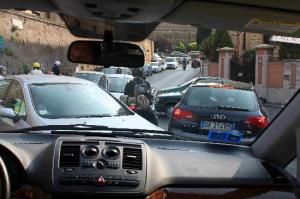Ah, it’s January and I started back at the YMCA in the 7:00 AM water exercise class that I have been participating for years. In fact, this class runs MWF and I actually teach the Friday session. It’s a wonderful conglomeration of people, most of us 60 or older. It’s great fun, and good exercise. This Monday, the first class of the new Y session, no one was missing. Pretty much everyone who had ever been in the class was there. It’s a common phenomenon, the drive to get back to exercise after the excesses of the holidays.
But at the start of this holiday season, Thanksgiving, I spent time with one of my sons and his girl friend and her family. We had a lovely time in California, watching the sun set over the Pacific Ocean, but Jeff, in his blunt but kind way, told me that I needed to bump things up a bit. “Water exercise is fine, Mom,” he said, “but it’s not enough now. If you are going to live another 15 years, you have to do more”
This was not a message I welcomed, although I did appreciate it because I knew what motivated it. I took it as kindness, and I know that I need to be doing more weight bearing exercise.
And so what am I doing besides water exercise? Why do I have to do anything besides water exercise? The why is obvious. I need to be in better shape. I need to lose more weight to be a healthy person. But the what is a different question. I find treadmills and elliptical trainers boring. I love walking outside but tend to amble because I like to look at birds and animal tracks and also, because of two knee replacements, I am cautious about falling on ice or on uneven sidewalk
The solution has presented itself pretty clearly. Many of the members of the MWF water class gather in the “gold room”, (the fancy locker room) for coffee before class. Some of the members of the class are there as much as an hour early. Being there by six seems a little extreme, but I can easily be there by 6:30. I can walk on the treadmill and still talk to my buddies and get in half an hour of walking before class. The water feels wonderful after walking, and I feel virtuous.
It’s a start, but even more important than my buddies in the gold room, or the walking itself, I have a cheerleader. I text my son every time I do at least half an hour on the treadmill He always texts back something positive and encouraging.
Exercise is important. In general, we don’t get enough of it. It helps our physical and mental health, but it’s important to have cheerleaders, too. I highly recommend that if, in your New Year’s Resolutions, you have decided to improve your exercise routine, find someone who will exercise with you, or who will text you encouraging things, or someone who is just in your corner as you work on a new regime. It makes all the difference.
Jane







